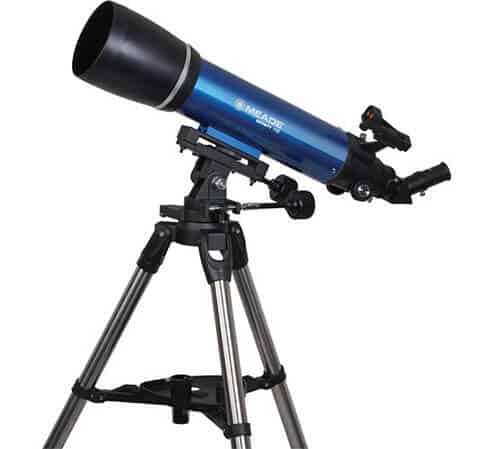
With it, you cannot only get a clear image of the planets and the Moon, but also of Milky Way star clusters and nebulae.
#Refractor telescope professional
If you want a more professional telescope, that can offer a more in-depth outlook of the night sky, you should go with one that has apochromatic refractor lenses. As a casual user, an 80mm or 90mm refractor will do a terrific job in observing the Moon and other planets. If you do go lower than this number, remember there’s a great chance you’re dealing with false colour. However, you will still need to get one with achromatic lenses, as well as with a focal ratio of minimum f/10. Right from the get-go, it’s safe to say that refractor telescopes are, by nature, excellent observation tools that will enable you to see fine details on the surface of the planets and the moon. What to Look for When Purchasing a Refractor Telescope? This is why you’ll find that all refractors on today’s market are built to also incorporate this ‘achromatic’ objective. Thankfully the chromatic aberration issue was successfully addressed in the mid 1750s, when refractor telescopes with two objective lenses were introduced. Another issue that came up with that specific type of lenses, was that they produced chromatic aberration – this means that ray lights such as green, blue and red focused at different points, making the stars and planets encompassed by coloured halos. Since earlier versions had lenses with spherical curvature, users and astronomers struggled with image distortion towards the edge of the field of view. At the top of the tube they have a large glass objective lens that helps capture light, which is then focused at the bottom of the tube where an eyepiece transforms it into an image our brain can perceive and has knowledge of, such as the stars or the Moon. The way refractor telescopes work is pretty straightforward.

In fact, Galileo Galilei used the same type of telescope back in 1609, when he was exploring the sky.

What Are Refractor Telescopes?Īlthough the name may sound a bit intimidating, refractor telescopes are none other than those most of us think of when we think about telescopes. In terms of computerisation, I’ve found that for the price it goes under, the Celestron 22096 NexStar 102 SLT offers a fantastic finderscope that can help you more easily locate certain celestial objects.įinally, if you are on a budget and are looking for a good quality telescope, the Celestron 21064 AstroMaster 90EQ refractor telescope would be your best bet. Having said this, I’ve found that the Skywatcher Evostar-90 AZ-3 is the best possible solution for anyone looking for high quality at a decent price. I took into consideration a myriad of factors, among which computerisation, functionality and financial factors. I know how difficult it is to choose a refractor telescope that matches your needs, so I went ahead and analysed three of the best refractor telescopes for an entry-level as well as experienced astronomers on the UK market.


 0 kommentar(er)
0 kommentar(er)
